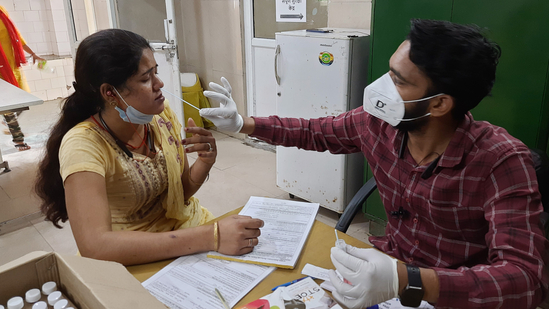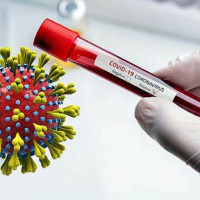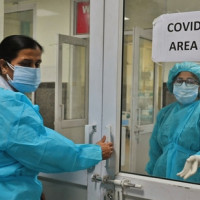- Wednesday, 28 May 2025
COVID cases in India surge past 1,000, states on alert
By Priyanshu Priya (Hindustan Times), May 26: India has reported a significant rise in active Covid-19 cases, with the total number crossing the 1,000 mark, according to data released by the Union Ministry of Health and Family Welfare (MoHFW) on Monday.
As of May 26, the country has 1,009 active cases, a sharp increase from 257 active cases on May 19. While most of the current cases are reported to be mild and do not require hospital admission, health officials across several states are on alert.
State-wise surge in Cases
States like Kerala, Tamil Nadu, Maharashtra, and Karnataka are currently seeing the most COVID-19 cases, according to the Union Health Ministry. Kerala has reported the highest rise in active cases in the past week, followed by Maharashtra, Delhi, Gujarat, and Karnataka.
According to the health ministry, as of May 26, the largest increase in active cases was seen in:
Kerala: 335 cases
Maharashtra: 153 cases
Delhi: 99 cases
Gujarat: 76 cases
Karnataka: 34 cases
These figures reflect a notable rise compared to the previous week. Between May 12 and May 19, Kerala reported only 69 new active cases, Maharashtra 44, Karnataka 8, Gujarat 6, and Delhi just 3.
First cases in Bihar and Jharkhand
States like Bihar and Jharkhand, which had previously reported no cases in the current wave, have now confirmed their first infections.
A 31-year-old man from Patna with no recent travel history was tested positive and is being treated at a private hospital, according to a PTI report.
A person who had recently returned from Mumbai tested positive in Jharkhand's Ranchi, marking the state’s first case in this wave, the news agency's report added.
Karnataka assessing precautionary measures
In Karnataka, health minister Dinesh Gundu Rao said that the government is monitoring the situation and has asked officials to increase testing, especially in high-risk groups.
"We have asked our department officials to conduct tests. RT-PCR testing kits will most probably reach our centres by tomorrow or the day after," Rao said.
“So, wherever necessary, we have asked for tests to be conducted, especially with Severe Acute Respiratory Infection (SARI) cases and Influenza-Like Illness (ILI) cases among aged people and children. This is compulsory at private and government hospitals.”
"Let's see the situation for four to five days in the state and the country," and said technical advisory committee meetings will be held weekly.
Rao also noted that the central government is monitoring the situation but has not issued any specific new restrictions, only guidelines on testing and precautions for high-risk individuals.
Central gov reviewed situation across states
Union Health Secretary Rajesh Bhushan on Saturday, last week, reviewed the situation with top officials from the Indian Council of Medical Research (ICMR), the Department of Health Research, and the National Centre for Disease Control (NCDC).
According to the Indian SARS-CoV-2 Genomics Consortium (INSACOG), new COVID-19 variants have been detected in the country. These include:
In the new Covid wave, one case of variant NB.1.8.1 and four cases of variant LF.7 have been reported so far.
These variants are under observation by the World Health Organisation (WHO) as Variants Under Monitoring (VUMs). They are not classified as dangerous variants yet, but have been linked to rising case numbers in China and parts of Asia.
In India, however, the most common COVID-19 variant remains JN.1, making up 53% of all cases tested. It is followed by BA.2 (26%) and other Omicron-related strains (20%).








-square-thumb.jpg)



-original-thumb.jpg)

